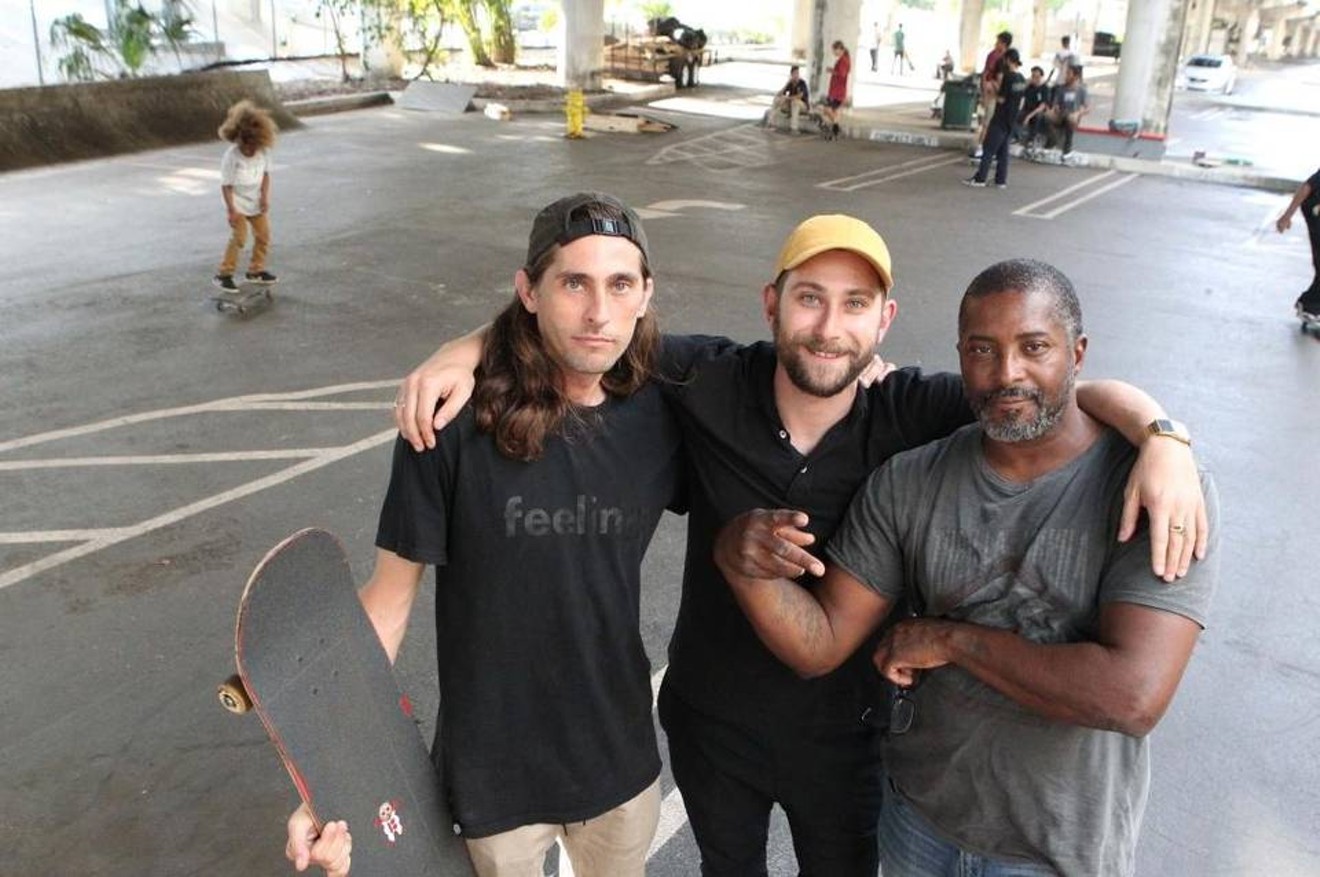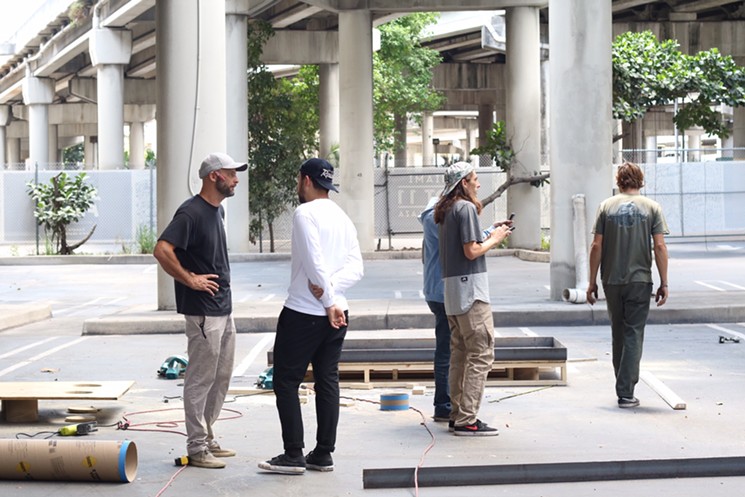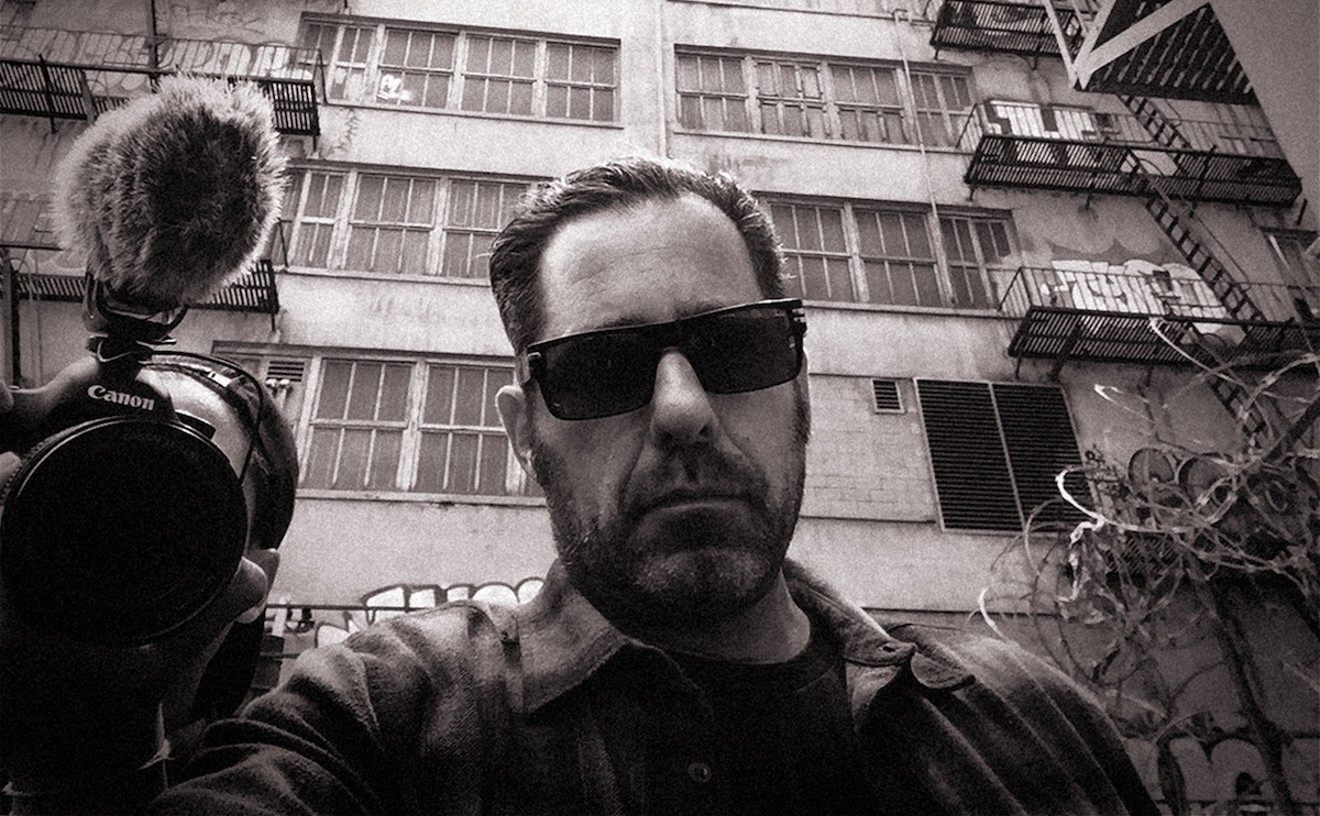For Nick Katz, skateboarding has been a major part of his life for as long as he can remember. Growing up in the suburbs of South Miami-Dade, a 10-year-old Katz was introduced to the sport by his older brother and got his first board as a present.
"I asked for a skateboard one Hanukkah. I picked it out on [the mail-order skate shop] CCS, and that’s how it all started," Katz says.
He soon began taking the Metrorail to downtown Miami, where local street skaters congregated. "I made all my friends doing that. I met kids from all over the place: kids from Liberty City, kids from Kendall, Little Haiti, Little Havana. It shaped my adolescence," he says.
There has long been a skateboard scene in Miami — skaters from all over travel to skate the city's unique blend of architecture and tropical landscapes — and for just as long there has been a gaping hole in its recreational services for skaters. "I grew up with no skate parks," Katz says. "There was nowhere centrally located or accessible for the Miami skate population. The only places to go were the street or privately owned skate parks."
That will change with this weekend's grand opening of Lot 11, downtown’s first state-of-the-art skate park. Katz has spent almost a decade realizing the project, which was constructed on a state-owned parking lot beneath an I-95 overpass.
The idea for the park came when Brad Knoefler and Aramis Lorie, owners of the now-defunct music venue Grand Central, offered Katz an opportunity to try his hand at skate-park design when they won a Community Redevelopment Agency grant to build a temporary park at the site of the old Miami Arena.
Katz had moved to Los Angeles for college because of the city's reputation as a skateboarding epicenter, and he took what he'd learned there and applied it to the pilot skate-park project.
“L.A. was the backdrop of all the skate videos I watched when I was growing up, so I had to go,” Katz says, adding he was inspired by not only the Southern California skate community but also how L.A. had evolved to meet the demand.
While working on the temporary skate park, Katz met restaurateur Richie Effs and professional skateboarder Danny Fuenzalida, who shared his passion for championing the sport in the city. Together they set out to create an organization committed to promoting the sport of skateboarding — Skate Free — which took on a not-so-simple mission: to build a skate park in downtown Miami.
Historically, city governments have treated skateboarding as a nuisance, but Katz wasn't surprised at the positive reaction he and the rest of the group received when they pitched their idea to the City of Miami.
"I proved that if you built a park, whether complex or rudimentary, it created a home for skateboarders that took their attention away from private property," Katz says, referring to the success of the temporary park. "Cops would come by on their lunch break and tell me: 'Ever since you built Grand Central Skatepark, we’ve had a lot less trespassing calls down at Bayfront.'”
Encouraged by city officials, Katz, Effs, and Fuenzalida began scouting sites downtown. The location was imperative, Katz says, owing to the area's historic ties to skateboarding and its access to public transportation, the latter of which eliminated the issue of accessibility for the majority of Miami youth. “What I had seen in other cities was that skate parks had been given underutilized and unprofitable spaces, mainly underneath interstate overpasses. So we started looking into who owned those spaces.”
After pinpointing an underutilized parking lot at NW Third Avenue and NW First Street underneath I-95 in Overtown — a scant two blocks from the Government Center Metrorail station — Katz tracked down officials at the Miami Parking Authority (MPA).
“It was a match made in heaven. We were going to make these spaces useful,” he says.
Still, transforming an MPA-managed space into a recreational facility would prove to be a challenge.
Katz had spent some time at Bradenton Skatepark, a facility on Florida's Gulf Coast that was located partially underneath a highway overpass. The Skate Free team reached out to Bradenton city officials to request documents, plans, and lease agreements with the Florida Department of Transportation. Using those materials as a model, they lobbied Miami officials — for two long years.
Once they'd reached an agreement to repurpose the lot, the trio reached out to specialty contractors to begin drawing designs. The bureaucratic process consumed the better part of four years, accompanied by the arduous chore of fundraising.
“It was the most difficult thing I’ve ever done in my life,” Katz says. “We went and met with every organization you can think of — every CRA, every local municipality, local charity group. And we had a very hard time getting them to want to support our project.”
Though several city commissioners offered small contributions, the project had to wait for enough financial support to get it off the ground. By 2016, Katz was losing steam.
Faced with the prospect of losing the agreements that were already in place with the city, Katz turned to his family, which had created a charitable foundation the previous year. The family foundation wrote him a promissory note for 50 percent of the park’s total budget, giving Katz the leverage he needed to sway Miami commissioners to match the pledge. The lease agreement with the parking authority runs for 25 years and includes an option to renew at a cost of $1 per year.
Construction on the 45,000-square-foot facility commenced this past March.
This Saturday, November 16, from 3 to 8 p.m., Skate Free will celebrate the grand opening of Lot 11, complete with food trucks, live music, giveaways, and, of course, a tricks contest for a prize.
When Katz speaks about the long-awaited event, his excitement is palpable. As much as it is a personal accomplishment, he says, it also illustrates the crucial engagement and advocacy role that community members play in getting a project off the ground.
In this instance, it took the State of Florida, the City of Miami, the Miami Parking Authority, and two private nonprofits to build a public skate park.
"But," Katz says, “I guess in the end, it’s fuckin’ dope.”
Lot 11 Grand Opening. 3 to 8 p.m. Saturday, November 16, at 348 NW Second St., Miami; skatefree.org. Admission is free.
[
{
"name": "Air - MediumRectangle - Inline Content - Mobile Display Size",
"component": "19274298",
"insertPoint": "2",
"requiredCountToDisplay": "2"
},{
"name": "Editor Picks",
"component": "17482312",
"insertPoint": "4",
"requiredCountToDisplay": "1"
},{
"name": "Inline Links",
"component": "18711090",
"insertPoint": "8th",
"startingPoint": 8,
"requiredCountToDisplay": "7",
"maxInsertions": 25
},{
"name": "Air - MediumRectangle - Combo - Inline Content",
"component": "17482310",
"insertPoint": "8th",
"startingPoint": 8,
"requiredCountToDisplay": "7",
"maxInsertions": 25
},{
"name": "Inline Links",
"component": "18711090",
"insertPoint": "8th",
"startingPoint": 12,
"requiredCountToDisplay": "11",
"maxInsertions": 25
},{
"name": "Air - Leaderboard Tower - Combo - Inline Content",
"component": "17482313",
"insertPoint": "8th",
"startingPoint": 12,
"requiredCountToDisplay": "11",
"maxInsertions": 25
}
]














